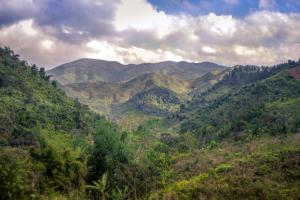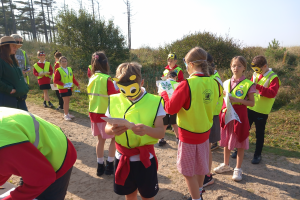Latest Doctoral Academy News
-
 18 December 2025
18 December 2025Bangor University 1884 Journal: CAHSS Conference Special Edition
-
 21 November 2025
21 November 2025BFWG- British Federation of Women Graduates North West Travel Bursary
-
16 October 2025
International Science Partnerships Fund (ISPF) Institutional Support Grant
-
 7 October 2025
7 October 2025Welsh Gov PhD Placement: Assessing data availability to improve decision making on agricultural pollution
-
 2 October 2025
2 October 2025Wartski Travel Fund 2025/26
-
 29 September 2025
29 September 2025Winter 2025 funding: Laura Bassi Scholarship
-
 10 September 2025
10 September 2025Postgraduate Research Skills Training
-
 10 September 2025
10 September 2025Other Effective area-based Conservation Measures (OECMs) PhD Placement
-
 5 August 2025
5 August 2025Postgraduate Price Davies Scholarship (Y Werin Legacy Fund)
-
 11 July 2025
11 July 2025Welsh Government's latest PhD placement opportunities
-
 10 July 2025
10 July 2025Bangor University Postgraduate Summer Mobility Awards 2025
-
 20 June 2025
20 June 2025Summer 2025 round of funding for the Laura Bassi Scholarship.
Research News
-
 12 December 2025
12 December 2025New book explores how mindfulness can help people live and work with greater meaning in today’s fast-moving world
-
 1 December 2025
1 December 2025A decade on, Wales’ opt-out organ donation law shows little impact, researchers say
-
 12 November 2025
12 November 2025Bangor University researchers listed among worldwide top 1%
-
 15 October 2025
15 October 2025New study highlights urgent need for action on domestic abuse in Port Talbot
-
 10 October 2025
10 October 2025Always look on the bright side of academic life: Study examines how joy is found in academia
-
 1 October 2025
1 October 2025Health and Care Research Wales announces latest round of funding awards
-
 25 September 2025
25 September 2025New study highlights benefits of container-based sanitation in informal settlements
-
 16 September 2025
16 September 2025Major new funding for Anglesey Green Transition Project
-
16 September 2025
New study sheds light on impact of stress on baby lizards
-
 4 September 2025
4 September 2025Bangor University academics appointed to REF 2029 sub-panels
-
 3 September 2025
3 September 2025Bilingualism possible in people with rare genetic condition that normally limits speech
-
 2 September 2025
2 September 2025Experts urge the medical profession to confront the global arms industry
